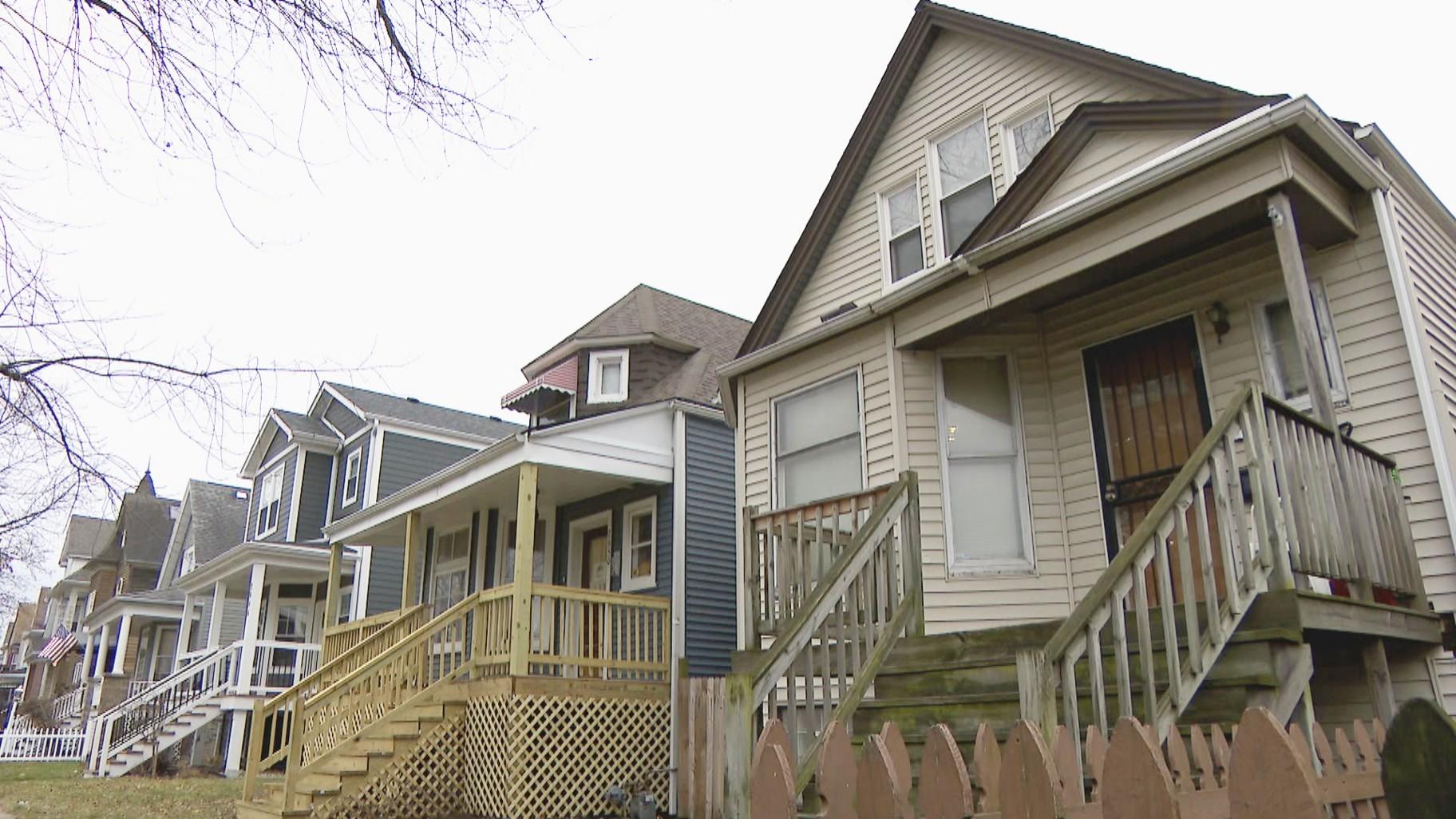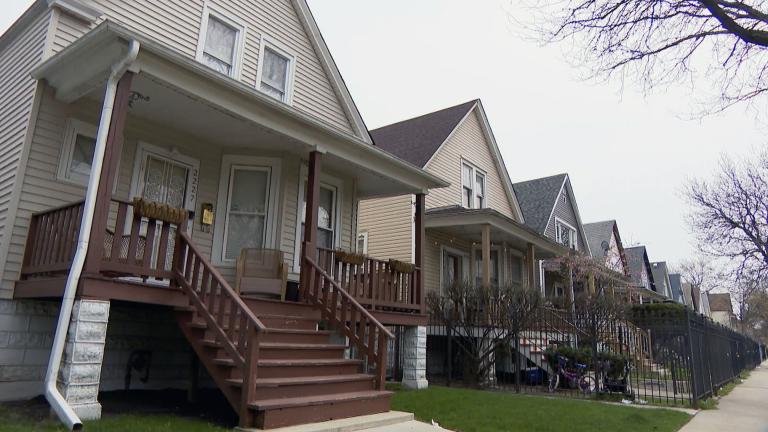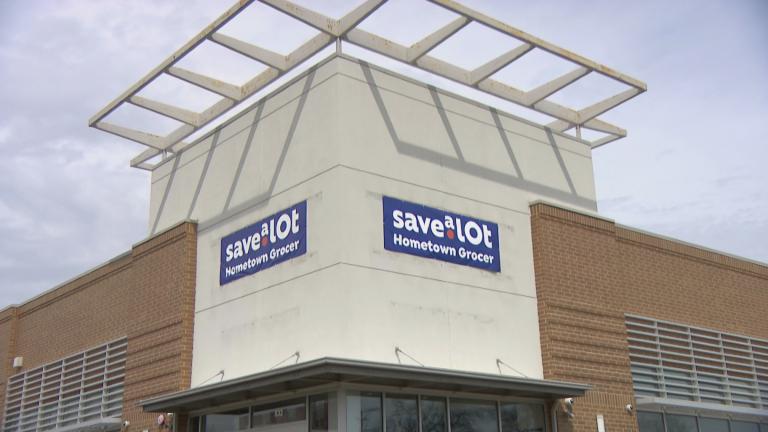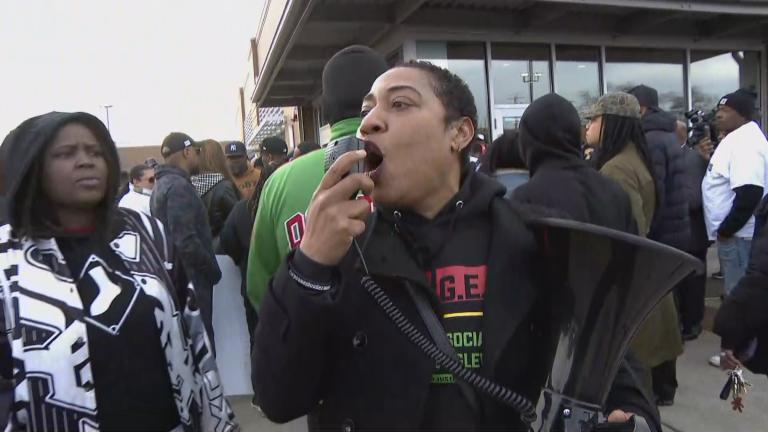 (WTTW News)
(WTTW News)
A proposal from Mayor Brandon Johnson to borrow $1.25 billion during the next five years to fund a wide-ranging slate of projects designed to expand the supply of affordable homes and good-paying jobs in neighborhoods that have suffered during decades of disinvestment got its moment in the City Hall spotlight on Friday afternoon.
The City Council’s Finance Committee held a hearing on the details of the complicated proposal that would phase out the city’s decades-long reliance on tax-increment financing districts, known as TIFs, and reshape the way Chicago uses its financial resources to spur redevelopment and eradicate blight.
Finance Committee Chair Ald. Pat Dowell (3rd Ward) gave no indication after the hearing as to when she plans to hold a vote.
Planning and Development Commissioner Ciere Boatright touted the program as a “game changer for Chicago’s most vulnerable communities” while Housing Commissioner Lissette Castañeda said the initiative, if approved, would shape Chicago “for generations” by confronting the city’s massive shortage of affordable housing.
Johnson has touted the proposal as a fulfillment of a promise he made during the 2023 campaign to make Chicago a more equitable place to live by “investing in people” and expanding the city’s economic capacity — without raising taxes on Chicago property owners.
Friday’s hearing provided the first chance for alderpeople to vet his proposal to transform Chicago’s approach to economic development after decades of relying nearly entirely on funds from TIFs.
While Ald. Walter Burnett (27th Ward), an ally of the mayor, praised the proposal as “brilliant and creative,” Ald. Bill Conway (34th Ward), a frequent mayoral foe, said he had “grave concerns.”
“We need to take heed of the message of the voters sent Tuesday night by the voters, which was a rejection of the ‘first we get the money mentality,’” Conway said.
Conway was referring to the apparent failure of the ballot measure known as Bring Chicago Home, which emboldened several of Johnson’s City Council critics.
But Ald. Daniel La Spata (1st Ward) said the city’s reliance on TIFs was “absurd.”
“I’m ready to be done with them,” La Spata said.
Since their creation in the mid-1980s, TIFs have been beloved by alderpeople for providing a dedicated fund for a host of programs, ranging from road improvements to school additions and expanded park facilities. Those projects are not OK’d without the approval of local alderpeople, giving them a significant amount of power at City Hall.
That means transforming those dollars into a citywide pool of money runs the risk of reducing each alderperson’s power — and forces alderpeople to compete with their colleagues and lobby the mayor to ensure that their favored projects and initiatives are funded.
But Tim Jeffries, the managing deputy commissioner for the Planning Department, said TIFs were “inherently inequitable” by generating “the fewest resources in areas where the need is the greatest.”
Chief Financial Officer Jill Jaworski presented the proposal to City Council members as a no-brainer that would create a “long-term source of equitable, flexible funding” at no cost to the city’s financial condition by taking advantage of the expiration of 45 of the city’s 127 TIF districts that are set to expire before the end of 2027.
Echoing her boss’ campaign promise, Jaworski said “investing in people” will expand the city’s economic capacity, attracting new residents and businesses and ultimately making Chicago a more vibrant place to live.
The plan calls for the city to borrow no more than $250 million per year, which will cost the city $81 million per year in debt service, Jaworski said. In all, the city would be on the hook to pay back $2.4 billion through 2061, she added.
The ordinance, which could face a vote by the City Council in the coming weeks, will limit how current and future administrations can spend the borrowed funds, require public hearings to take place twice per year and require officials to publish an online database tracking spending, officials said.
For many years, TIF districts have claimed a growing share of city property tax revenues, fueling the debate over whether the districts, which capture all growth in the property tax base in a designated area for 24 years, exacerbate growing inequality in Chicago.
Typically, as those districts expire, city officials have asked state lawmakers to extend the districts’ lives. But with so many expiring in such a short time, that is unlikely — which could shrink the amount of funds available for economic development projects significantly, Jeffries said.
The expiration of nearly four dozen TIFs gives Johnson a unique opportunity to reshape the way the city approaches development without requiring the City Council to consider what would likely be a politically radioactive property tax increase.
Once those TIF districts expire, the funds they had been collecting — estimated at $2.2 billion through 2039 — would flow instead to the area’s taxing districts, including the city, the Chicago Public Schools and the Chicago Park District. That would allow the city to pay off the debt — without triggering a property tax increase, Jaworski said, calling her department’s projections “conservative.”
After “right sizing” the city’s TIF program, officials will “focus it on areas it can be productive and strategically needed,” Jeffries said.
Contact Heather Cherone: @HeatherCherone | (773) 569-1863 | [email protected]






